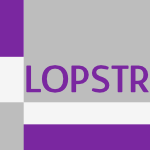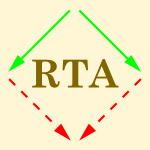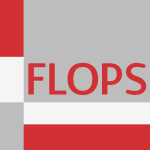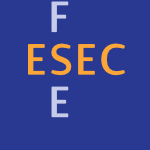Tag #program analysis
218 papers:
 ECOOP-2019-VillazonSRRBDOB #automation #multi #scalability
ECOOP-2019-VillazonSRRBDOB #automation #multi #scalability- Automated Large-Scale Multi-Language Dynamic Program Analysis in the Wild (Tool Insights Paper) (AV, HS, AR, ER, DB, ID, SO, WB), p. 27.
 OOPSLA-2019-WeiCR #composition #metaprogramming #performance #staged
OOPSLA-2019-WeiCR #composition #metaprogramming #performance #staged- Staged abstract interpreters: fast and modular whole-program analysis via meta-programming (GW, YC, TR), p. 32.
 ASE-2019-EiersSBB
ASE-2019-EiersSBB - Subformula Caching for Model Counting and Quantitative Program Analysis (WE, SS, TB, TB), pp. 453–464.
 ASE-2019-NguyenNLW #statistics
ASE-2019-NguyenNLW #statistics- Combining Program Analysis and Statistical Language Model for Code Statement Completion (SVN, TNN, YL, SW0), pp. 710–721.
 ESEC-FSE-2019-Mitropoulos #debugging #evolution
ESEC-FSE-2019-Mitropoulos #debugging #evolution- Employing different program analysis methods to study bug evolution (CM), pp. 1202–1204.
- ICSE-2019-HeoOY #abstraction #online #resource management
- Resource-aware program analysis via online abstraction coarsening (KH, HO, HY), pp. 94–104.
 VMCAI-2019-BoutonnetH #abstract interpretation #interprocedural #relational
VMCAI-2019-BoutonnetH #abstract interpretation #interprocedural #relational- Disjunctive Relational Abstract Interpretation for Interprocedural Program Analysis (RB, NH), pp. 136–159.
 ICSME-2018-MurthyP #javascript
ICSME-2018-MurthyP #javascript- Change-Aware Dynamic Program Analysis for JavaScript (DRKM, MP), pp. 127–137.
 SCAM-2018-HarmanO #problem
SCAM-2018-HarmanO #problem- From Start-ups to Scale-ups: Opportunities and Open Problems for Static and Dynamic Program Analysis (MH, PWO), pp. 1–23.
 SEFM-2018-Balasubramanian #execution #framework
SEFM-2018-Balasubramanian #execution #framework- A Cloud-Based Execution Framework for Program Analysis (DB, DK, KSL, RK, GK), pp. 139–154.
 SAS-2018-NamjoshiP #program transformation
SAS-2018-NamjoshiP #program transformation- The Impact of Program Transformations on Static Program Analysis (KSN, ZP), pp. 306–325.
 ASE-2018-Noller #difference #execution #fuzzing #symbolic computation
ASE-2018-Noller #difference #execution #fuzzing #symbolic computation- Differential program analysis with fuzzing and symbolic execution (YN), pp. 944–947.
- ICSE-2018-UpadhyayaR
- Collective program analysis (GU, HR), pp. 620–631.
- ICSE-2018-ZhaoLLM #latency #mobile
- Leveraging program analysis to reduce user-perceived latency in mobile applications (YZ, MSL, YL, NM), pp. 176–186.
 ESOP-2018-BatzKKM #how #network
ESOP-2018-BatzKKM #how #network- How long, O Bayesian network, will I sample thee? - A program analysis perspective on expected sampling times (KB, BLK, JPK, CM), pp. 186–213.
 CAV-2018-SinghPV #learning #performance
CAV-2018-SinghPV #learning #performance- Fast Numerical Program Analysis with Reinforcement Learning (GS, MP, MTV), pp. 211–229.
 CAV-2018-CousotGR #perspective #verification
CAV-2018-CousotGR #perspective #verification- Program Analysis Is Harder Than Verification: A Computability Perspective (PC, RG, FR), pp. 75–95.
 ICSME-2017-AngererGPL #empirical #variability
ICSME-2017-AngererGPL #empirical #variability- An Experiment Comparing Lifted and Delayed Variability-Aware Program Analysis (FA, PG, HP, LL), pp. 148–158.
 SANER-2017-StefanicaM #named #tool support
SANER-2017-StefanicaM #named #tool support- XCORE: Support for developing program analysis tools (AS, PFM), pp. 462–466.
 SEFM-2017-LiuW #api #named
SEFM-2017-LiuW #api #named- IJIT: An API for Boolean Program Analysis with Just-in-Time Translation (PL, TW), pp. 316–331.
 OOPSLA-2017-ChaeOHY #automation #generative #heuristic #learning
OOPSLA-2017-ChaeOHY #automation #generative #heuristic #learning- Automatically generating features for learning program analysis heuristics for C-like languages (KC, HO, KH, HY), p. 25.
 LOPSTR-2017-LiqatBLH #bound #energy #modelling
LOPSTR-2017-LiqatBLH #bound #energy #modelling- Inferring Energy Bounds via Static Program Analysis and Evolutionary Modeling of Basic Blocks (UL, ZB, PLG0, MVH), pp. 54–72.
 QAPL-2017-LidmanS #fuzzy #logic #using
QAPL-2017-LidmanS #fuzzy #logic #using- Bridging Static and Dynamic Program Analysis using Fuzzy Logic (JL, JS), pp. 111–126.
 ESEC-FSE-2017-BrennanTRAB #constraints #normalisation
ESEC-FSE-2017-BrennanTRAB #constraints #normalisation- Constraint normalization and parameterized caching for quantitative program analysis (TB, NT, NR, AA, TB), pp. 535–546.
 ESEC-FSE-2017-BuXXZTX #android #industrial #internet #mobile #security
ESEC-FSE-2017-BuXXZTX #android #industrial #internet #mobile #security- When program analysis meets mobile security: an industrial study of misusing Android internet sockets (WB, MX, LX, YZ, ZT, TX), pp. 842–847.
 VMCAI-2017-0062BW #memory management #modelling
VMCAI-2017-0062BW #memory management #modelling- Partitioned Memory Models for Program Analysis (WW0, CWB, TW), pp. 539–558.
 SANER-2016-GrimmerAPG #case study #experience #lessons learnt
SANER-2016-GrimmerAPG #case study #experience #lessons learnt- Supporting Program Analysis for Non-Mainstream Languages: Experiences and Lessons Learned (AG, FA, HP, PG), pp. 460–469.
- IFM-2016-Kovacs #automation #reasoning #symbolic computation
- Symbolic Computation and Automated Reasoning for Program Analysis (LK), pp. 20–27.
 ECOOP-2016-PalmerS #higher-order
ECOOP-2016-PalmerS #higher-order- Higher-Order Demand-Driven Program Analysis (ZP, SFS0), p. 25.
 ECOOP-2016-ZhaoCLS #ontology #towards
ECOOP-2016-ZhaoCLS #ontology #towards- Towards Ontology-Based Program Analysis (YZ, GC, CL, XS), p. 25.
 POPL-2016-RepsTP
POPL-2016-RepsTP - Newtonian program analysis via tensor product (TWR, ET, PP), pp. 663–677.
 ASE-2016-ChristakisB #developer #empirical #what
ASE-2016-ChristakisB #developer #empirical #what- What developers want and need from program analysis: an empirical study (MC, CB), pp. 332–343.
 FSE-2016-JohnsonPSFEMHS #communication
FSE-2016-JohnsonPSFEMHS #communication- A cross-tool communication study on program analysis tool notifications (BJ, RP, JS0, DF, SE, ERMH, SH, CS), pp. 73–84.
 CC-2016-ScholzJSW #datalog #on the #performance #scalability
CC-2016-ScholzJSW #datalog #on the #performance #scalability- On fast large-scale program analysis in Datalog (BS, HJ, PS, TW), pp. 196–206.
 CAV-2016-GuthHSR #named #semantics
CAV-2016-GuthHSR #named #semantics- RV-Match: Practical Semantics-Based Program Analysis (DG, CH, MS, GR), pp. 447–453.
 VMCAI-2016-KarpenkovMW #policy
VMCAI-2016-KarpenkovMW #policy- Program Analysis with Local Policy Iteration (EGK, DM, PW), pp. 127–146.
 SIGMOD-2015-0002KBDHKFG #coordination #protocol #transaction
SIGMOD-2015-0002KBDHKFG #coordination #protocol #transaction- The Homeostasis Protocol: Avoiding Transaction Coordination Through Program Analysis (SR, LK, GB, BD, HH, CK, NF, JG), pp. 1311–1326.
 FM-2015-NelsonFK #difference #network
FM-2015-NelsonFK #difference #network- Static Differential Program Analysis for Software-Defined Networks (TN, ADF, SK), pp. 395–413.
 OOPSLA-2015-DaraisMH #composition #reuse
OOPSLA-2015-DaraisMH #composition #reuse- Galois transformers and modular abstract interpreters: reusable metatheory for program analysis (DD, MM, DVH), pp. 552–571.
 OOPSLA-2015-OhYY #adaptation #learning #optimisation
OOPSLA-2015-OhYY #adaptation #learning #optimisation- Learning a strategy for adapting a program analysis via bayesian optimisation (HO, HY, KY), pp. 572–588.
 PLDI-2015-SinghPV #performance
PLDI-2015-SinghPV #performance- Making numerical program analysis fast (GS, MP, MTV), pp. 303–313.
 ASE-2015-MaAZSGR15a #automation #generative #named #using
ASE-2015-MaAZSGR15a #automation #generative #named #using- GRT: An Automated Test Generator Using Orchestrated Program Analysis (LM, CA, CZ, HS, JG, RR), pp. 842–847.
 ESEC-FSE-2015-MangalZNN #approach
ESEC-FSE-2015-MangalZNN #approach- A user-guided approach to program analysis (RM, XZ, AVN, MN), pp. 462–473.
 GTTSE-2015-DwyerFGGPV #probability
GTTSE-2015-DwyerFGGPV #probability- Probabilistic Program Analysis (MBD, AF, JG, MJG, CSP, WV), pp. 1–25.
 ICSE-v1-2015-SadowskiGJSW #ecosystem #named
ICSE-v1-2015-SadowskiGJSW #ecosystem #named- Tricorder: Building a Program Analysis Ecosystem (CS, JvG, CJ, ES, CW), pp. 598–608.
 ICSE-v1-2015-WeissRL #fault #scalability
ICSE-v1-2015-WeissRL #fault #scalability- Database-Backed Program Analysis for Scalable Error Propagation (CW, CRG, BL), pp. 586–597.
 PPoPP-2015-DasSR #communication #concurrent #detection #thread
PPoPP-2015-DasSR #communication #concurrent #detection #thread- Section based program analysis to reduce overhead of detecting unsynchronized thread communication (MD, GS, JR), pp. 283–284.
 ICLP-J-2015-GangeNSSS #horn clause #program transformation #representation
ICLP-J-2015-GangeNSSS #horn clause #program transformation #representation- Horn clauses as an intermediate representation for program analysis and transformation (GG, JAN, PS, HS, PJS), pp. 526–542.
 ISSTA-2015-AquinoBCDP #constraints #proving #reuse
ISSTA-2015-AquinoBCDP #constraints #proving #reuse- Reusing constraint proofs in program analysis (AA, FAB, MC, GD, MP), pp. 305–315.
 ICPC-2014-GuptaS #quality
ICPC-2014-GuptaS #quality- A semiautomated method for classifying program analysis rules into a quality model (SG, HKS), pp. 266–270.
 OOPSLA-2014-HsiaoCN #corpus #statistics #using #web
OOPSLA-2014-HsiaoCN #corpus #statistics #using #web- Using web corpus statistics for program analysis (CHH, MJC, SN), pp. 49–65.
 POPL-2014-SharmaNA #trade-off
POPL-2014-SharmaNA #trade-off- Bias-variance tradeoffs in program analysis (RS, AVN, AA), pp. 127–138.
 ASE-2014-StephenSSE #big data
ASE-2014-StephenSSE #big data- Program analysis for secure big data processing (JJS, SS, RS, PTE), pp. 277–288.
 FSE-2014-Gao #testing
FSE-2014-Gao #testing- Numerical program analysis and testing (ZG), pp. 779–782.
 ISSTA-2014-Chen #constraints #proving #reuse #scalability
ISSTA-2014-Chen #constraints #proving #reuse #scalability- Reusing constraint proofs for scalable program analysis (MC), pp. 449–452.
 SMT-2014-FremontS #smt
SMT-2014-FremontS #smt- Speeding Up SMT-Based Quantitative Program Analysis (DJF, SAS), pp. 3–13.
 ECOOP-2013-AliL #named
ECOOP-2013-AliL #named- Averroes: Whole-Program Analysis without the Whole Program (KA, OL), pp. 378–400.
 ECOOP-2013-AnsaloniKZBBT #composition #java #tool support #virtual machine
ECOOP-2013-AnsaloniKZBBT #composition #java #tool support #virtual machine- Enabling Modularity and Re-use in Dynamic Program Analysis Tools for the Java Virtual Machine (DA, SK, YZ, LB, WB, PT), pp. 352–377.
 Onward-2013-Repenning #interactive #programming
Onward-2013-Repenning #interactive #programming- Conversational programming: exploring interactive program analysis (AR), pp. 63–74.
 OOPSLA-2013-BhattacharyaGN #detection
OOPSLA-2013-BhattacharyaGN #detection- Combining concern input with program analysis for bloat detection (SB, KG, MGN), pp. 745–764.
 ESEC-FSE-2013-WangZCZZ #javascript
ESEC-FSE-2013-WangZCZZ #javascript- Extracting URLs from JavaScript via program analysis (QW, JZ, YC, YZ, JZ), pp. 627–630.
 ICSE-2013-HaoLHG #energy #mobile #using
ICSE-2013-HaoLHG #energy #mobile #using- Estimating mobile application energy consumption using program analysis (SH, DL, WGJH, RG), pp. 92–101.
 ICSE-2013-Johnson04a #comprehension
ICSE-2013-Johnson04a #comprehension- Novice understanding of program analysis tool notifications (BJ), pp. 1432–1434.
 ICSE-2013-SharTB #hybrid #injection #mining #sql #using
ICSE-2013-SharTB #hybrid #injection #mining #sql #using- Mining SQL injection and cross site scripting vulnerabilities using hybrid program analysis (LKS, HBKT, LCB), pp. 642–651.
 GPCE-2013-MarekKZBBTASS #framework #java #named #platform #robust
GPCE-2013-MarekKZBBTASS #framework #java #named #platform #robust- ShadowVM: robust and comprehensive dynamic program analysis for the java platform (LM, SK, YZ, LB, WB, PT, DA, AS, AS), pp. 105–114.
 CGO-2013-JeonGT #named #performance
CGO-2013-JeonGT #named #performance- Skadu: Efficient vector shadow memories for poly-scopic program analysis (DJ, SG, MBT), p. 12.
 CAV-2013-ChakarovS #probability
CAV-2013-ChakarovS #probability- Probabilistic Program Analysis with Martingales (AC, SS), pp. 511–526.
 SCAM-2012-AftandilianSPK #compilation #java #tool support #using
SCAM-2012-AftandilianSPK #compilation #java #tool support #using- Building Useful Program Analysis Tools Using an Extensible Java Compiler (EA, RS, SP, SK), pp. 14–23.
 ICEIS-v2-2012-FonteBCGH #evaluation #using
ICEIS-v2-2012-FonteBCGH #evaluation #using- Program Analysis and Evaluation using Quimera (DF, IVB, DCdC, ALG, PRH), pp. 209–219.
 OOPSLA-2012-BaoZZ #nondeterminism
OOPSLA-2012-BaoZZ #nondeterminism- White box sampling in uncertain data processing enabled by program analysis (TB, YZ, XZ), pp. 897–914.
 LOPSTR-2012-Zinn #reasoning
LOPSTR-2012-Zinn #reasoning- Program Analysis and Manipulation to Reproduce Learners’ Erroneous Reasoning (CZ), pp. 228–243.
 PLDI-2012-BenzHH #float #problem
PLDI-2012-BenzHH #float #problem- A dynamic program analysis to find floating-point accuracy problems (FB, AH, SH), pp. 453–462.
 PLDI-2012-LeeCFN #hybrid #named
PLDI-2012-LeeCFN #hybrid #named- Chimera: hybrid program analysis for determinism (DL, PMC, JF, SN), pp. 463–474.
 FSE-2012-VisserGD #constraints #named #reuse
FSE-2012-VisserGD #constraints #named #reuse- Green: reducing, reusing and recycling constraints in program analysis (WV, JG, MBD), p. 58.
 CC-2012-JimboreanMLC #framework #named
CC-2012-JimboreanMLC #framework #named- VMAD: An Advanced Dynamic Program Analysis and Instrumentation Framework (AJ, LM, VL, PC), pp. 220–239.
 CC-2012-YangBMIGSSS #c++ #inheritance
CC-2012-YangBMIGSSS #c++ #inheritance- Object Model Construction for Inheritance in C++ and Its Applications to Program Analysis (JY, GB, NM, FI, AG, NS, SS, NS), pp. 144–164.
 CGO-2012-AnsaloniBHC #multi
CGO-2012-AnsaloniBHC #multi- Deferred methods: accelerating dynamic program analysis on multicores (DA, WB, AH, LYC), pp. 242–251.
 WRLA-2012-HillsKV #rascal
WRLA-2012-HillsKV #rascal- Program Analysis Scenarios in Rascal (MH, PK, JJV), pp. 10–30.
 SCAM-2011-Larson #set
SCAM-2011-Larson #set- Program Analysis Too Loopy? Set the Loops Aside (EL), pp. 15–24.
 PEPM-J-2007-MollerS11 #graph #xml
PEPM-J-2007-MollerS11 #graph #xml- XML graphs in program analysis (AM, MIS), pp. 492–515.
 PEPM-2011-Rinard #bound #probability #program transformation #source code
PEPM-2011-Rinard #bound #probability #program transformation #source code- Probabilistic accuracy bounds for perforated programs: a new foundation for program analysis and transformation (MCR), pp. 79–80.
 SAS-2011-Mitchell #security #web
SAS-2011-Mitchell #security #web- Program Analysis for Web Security (JCM), p. 4.
 SAS-2011-NoriR #machine learning
SAS-2011-NoriR #machine learning- Program Analysis and Machine Learning: A Win-Win Deal (AVN, SKR), pp. 2–3.
 GTTSE-2011-CleveNH #database #reverse engineering
GTTSE-2011-CleveNH #database #reverse engineering- Dynamic Program Analysis for Database Reverse Engineering (AC, NN, JLH), pp. 297–321.
 ICSE-2011-LiuZ
ICSE-2011-LiuZ - Program analysis: from qualitative analysis to quantitative analysis (SL, JZ), pp. 956–959.
 SLE-2011-HillsKV #named #rascal
SLE-2011-HillsKV #named #rascal- RLSRunner: Linking Rascal with K for Program Analysis (MH, PK, JJV), pp. 344–353.
 CAV-2011-CookKV #verification
CAV-2011-CookKV #verification- Temporal Property Verification as a Program Analysis Task (BC, EK, MYV), pp. 333–348.
 CAV-2011-LeeYP #data type
CAV-2011-LeeYP #data type- Program Analysis for Overlaid Data Structures (OL, HY, RP), pp. 592–608.
 ICPC-2010-RatiuH #web
ICPC-2010-RatiuH #web- Utilizing Web Search Engines for Program Analysis (DR, LH), pp. 94–103.
 ICSM-2010-Cleve #data-driven #evolution #program transformation
ICSM-2010-Cleve #data-driven #evolution #program transformation- Program analysis and transformation for data-intensive system evolution (AC), pp. 1–6.
 RTA-2010-HillsR #approach #composition #logic #semantics
RTA-2010-HillsR #approach #composition #logic #semantics- A Rewriting Logic Semantics Approach to Modular Program Analysis (MH, GR), pp. 151–160.
 SFM-2010-PierroHW #probability #semantics
SFM-2010-PierroHW #probability #semantics- Probabilistic Semantics and Program Analysis (ADP, CH, HW), pp. 1–42.
 PLDI-2010-MightSH #functional #object-oriented
PLDI-2010-MightSH #functional #object-oriented- Resolving and exploiting the k-CFA paradox: illuminating functional vs. object-oriented program analysis (MM, YS, DVH), pp. 305–315.
 POPL-2010-GodefroidNRT #composition #power of
POPL-2010-GodefroidNRT #composition #power of- Compositional may-must program analysis: unleashing the power of alternation (PG, AVN, SKR, ST), pp. 43–56.
 POPL-2010-HarrisSIG #satisfiability #source code
POPL-2010-HarrisSIG #satisfiability #source code- Program analysis via satisfiability modulo path programs (WRH, SS, FI, AG), pp. 71–82.
 FSE-2010-SinhaW #concurrent #staged
FSE-2010-SinhaW #concurrent #staged- Staged concurrent program analysis (NS, CW), pp. 47–56.
 ICLP-2010-Dandois10 #logic programming #source code
ICLP-2010-Dandois10 #logic programming #source code- Program analysis for code duplication in logic programs (CD), pp. 241–247.
 ICLP-2010-Demeyer10 #concurrent #declarative #programming
ICLP-2010-Demeyer10 #concurrent #declarative #programming- Program Analysis to Support Concurrent Programming in Declarative Languages (RD), pp. 248–254.
 ISSTA-2010-GodefroidK #float #memory management #proving #safety
ISSTA-2010-GodefroidK #float #memory management #proving #safety- Proving memory safety of floating-point computations by combining static and dynamic program analysis (PG, JK), pp. 1–12.
 CIAA-2009-Seidl #automaton #finite
CIAA-2009-Seidl #automaton #finite- Program Analysis through Finite Tree Automata (HS), p. 3.
 PEPM-2009-CifuentesKLS #debugging #detection #using
PEPM-2009-CifuentesKLS #debugging #detection #using- Program analysis for bug detection using parfait: invited talk (CC, NK, LL, BS), pp. 7–8.
 PLDI-2009-JoshiPSN #detection #random
PLDI-2009-JoshiPSN #detection #random- A randomized dynamic program analysis technique for detecting real deadlocks (PJ, CSP, KS, MN), pp. 110–120.
 LICS-2009-Ghica #game studies #hardware #semantics #synthesis
LICS-2009-Ghica #game studies #hardware #semantics #synthesis- Applications of Game Semantics: From Program Analysis to Hardware Synthesis (DRG), pp. 17–26.
 ICPC-2008-EaddyAAG #dynamic analysis #information retrieval #named #requirements #source code #using
ICPC-2008-EaddyAAG #dynamic analysis #information retrieval #named #requirements #source code #using- CERBERUS: Tracing Requirements to Source Code Using Information Retrieval, Dynamic Analysis, and Program Analysis (ME, AVA, GA, YGG), pp. 53–62.
 PASTE-2008-ZaksP #compilation #validation
PASTE-2008-ZaksP #compilation #validation- Program analysis for compiler validation (AZ, AP), pp. 1–7.
 SCAM-2008-FehnkerHRS #assembly #embedded
SCAM-2008-FehnkerHRS #assembly #embedded- Some Assembly Required — Program Analysis of Embedded System Code (AF, RH, FR, SS), pp. 15–24.
 SCAM-2008-WangZZ #automation #detection #model checking
SCAM-2008-WangZZ #automation #detection #model checking- Automated Detection of Code Vulnerabilities Based on Program Analysis and Model Checking (LW, QZ, PZ), pp. 165–173.
 FM-2008-ZaksP #compilation #named #validation
FM-2008-ZaksP #compilation #named #validation- CoVaC: Compiler Validation by Program Analysis of the Cross-Product (AZ, AP), pp. 35–51.
 FLOPS-2008-Kobayashi #type system
FLOPS-2008-Kobayashi #type system- Substructural Type Systems for Program Analysis (NK), p. 14.
 AdaEurope-2008-FecheteKB #ada #framework #source code
AdaEurope-2008-FecheteKB #ada #framework #source code- A Framework for CFG-Based Static Program Analysis of Ada Programs (RF, GK, JB), pp. 130–143.
 PLDI-2008-GulwaniSV #constraints #theorem proving
PLDI-2008-GulwaniSV #constraints #theorem proving- Program analysis as constraint solving (SG, SS, RV), pp. 281–292.
 POPL-2008-McMillan #heuristic
POPL-2008-McMillan #heuristic- Relevance heuristics for program analysis (KLM), pp. 145–146.
 ASE-2008-BeyerHT #precise
ASE-2008-BeyerHT #precise- Program Analysis with Dynamic Precision Adjustment (DB, TAH, GT), pp. 29–38.
 VMCAI-2008-Pistoia #programming language #security
VMCAI-2008-Pistoia #programming language #security- Program Analysis and Programming Languages for Security (MP), p. 7.
 CSMR-2007-Boogerd #evolution #reliability
CSMR-2007-Boogerd #evolution #reliability- Supporting Reliable Software Evolution through Program Analysis (CB), pp. 341–344.
 PASTE-2007-PollockVSHFM #natural language
PASTE-2007-PollockVSHFM #natural language- Introducing natural language program analysis (LLP, KVS, DCS, EH, ZPF, KM), pp. 15–16.
 PASTE-2007-ShepherdPV #case study #natural language #reverse engineering
PASTE-2007-ShepherdPV #case study #natural language #reverse engineering- Case study: supplementing program analysis with natural language analysis to improve a reverse engineering task (DCS, LLP, KVS), pp. 49–54.
 ECOOP-2007-BoddenHL #monitoring #performance #runtime #staged
ECOOP-2007-BoddenHL #monitoring #performance #runtime #staged- A Staged Static Program Analysis to Improve the Performance of Runtime Monitoring (EB, LJH, OL), pp. 525–549.
 PEPM-2007-MollerS #graph #xml
PEPM-2007-MollerS #graph #xml- XML graphs in program analysis (AM, MIS), pp. 1–10.
 PPDP-2007-BentonF #declarative #implementation #interactive #prototype #scalability
PPDP-2007-BentonF #declarative #implementation #interactive #prototype #scalability- Interactive, scalable, declarative program analysis: from prototype to implementation (WCB, CNF), pp. 13–24.
 SAS-2007-SankaranarayananIG #using
SAS-2007-SankaranarayananIG #using- Program Analysis Using Symbolic Ranges (SS, FI, AG), pp. 366–383.
 ASE-2007-ZaraketAK
ASE-2007-ZaraketAK - Sequential circuits for program analysis (FAZ, AA, SK), pp. 114–123.
 ICSE-2007-DwyerKE #adaptation #online
ICSE-2007-DwyerKE #adaptation #online- Adaptive Online Program Analysis (MBD, AK, SGE), pp. 220–229.
 SAC-2007-Varma #program transformation #recognition
SAC-2007-Varma #program transformation #recognition- Generalizing recognition of an individual dialect in program analysis and transformation (PV), pp. 1432–1439.
 CADE-2007-TiwariG #logic #proving #theorem proving #using
CADE-2007-TiwariG #logic #proving #theorem proving #using- Logical Interpretation: Static Program Analysis Using Theorem Proving (AT, SG), pp. 147–166.
 CAV-2007-BeyerHT #configuration management #convergence #model checking #verification
CAV-2007-BeyerHT #configuration management #convergence #model checking #verification- Configurable Software Verification: Concretizing the Convergence of Model Checking and Program Analysis (DB, TAH, GT), pp. 504–518.
 ISSTA-2007-TombBV #detection #fault #interprocedural #runtime
ISSTA-2007-TombBV #detection #fault #interprocedural #runtime- Variably interprocedural program analysis for runtime error detection (AT, GPB, WV), pp. 97–107.
 ICSM-2006-StreinLLL #metamodelling
ICSM-2006-StreinLLL #metamodelling- An Extensible Meta-Model for Program Analysis (DS, RL, JL, WL), pp. 380–390.
 SCAM-2006-StreinKL #refactoring
SCAM-2006-StreinKL #refactoring- Cross-Language Program Analysis and Refactoring (DS, HK, WL), pp. 207–216.
 OOPSLA-2006-MaebeBEB #java #named #tool support
OOPSLA-2006-MaebeBEB #java #named #tool support- Javana: a system for building customized Java program analysis tools (JM, DB, LE, KDB), pp. 153–168.
 AdaEurope-2006-RazaVP #named #reverse engineering
AdaEurope-2006-RazaVP #named #reverse engineering- Bauhaus — A Tool Suite for Program Analysis and Reverse Engineering (AR, GV, EP), pp. 71–82.
 SAS-2006-OHearn #logic
SAS-2006-OHearn #logic- Separation Logic and Program Analysis (PWO), p. 181.
 ICSE-2006-Ruthruff #paradigm
ICSE-2006-Ruthruff #paradigm- Experimental program analysis: a new paradigm for program analysis (JRR), pp. 977–980.
 TACAS-2006-GroceJ
TACAS-2006-GroceJ - Exploiting Traces in Program Analysis (AG, RJ), pp. 379–393.
 ISSTA-2006-RuthruffER #paradigm
ISSTA-2006-RuthruffER #paradigm- Experimental program analysis: a new program analysis paradigm (JRR, SGE, GR), pp. 49–60.
 VMCAI-2006-ChangCN #framework #safety
VMCAI-2006-ChangCN #framework #safety- A Framework for Certified Program Analysis and Its Applications to Mobile-Code Safety (BYEC, AC, GCN), pp. 174–189.
 PODS-2005-LamWLMACU #database #query
PODS-2005-LamWLMACU #database #query- Context-sensitive program analysis as database queries (MSL, JW, VBL, MCM, DA, MC, CU), pp. 1–12.
 PASTE-2005-Myers #distributed #program transformation
PASTE-2005-Myers #distributed #program transformation- Making distributed systems secure with program analysis and transformation (ACM), p. 47.
 PASTE-2005-StroutMH #independence
PASTE-2005-StroutMH #independence- Representation-independent program analysis (MMS, JMMC, PDH), pp. 67–74.
 QAPL-2004-HankinW05 #λ-calculus
QAPL-2004-HankinW05 #λ-calculus- λ-calculus and Quantitative Program Analysis: (CH, HW), pp. 5–18.
 PLDI-2005-LukCMPKLWRH #named #tool support
PLDI-2005-LukCMPKLWRH #named #tool support- Pin: building customized program analysis tools with dynamic instrumentation (CKL, RSC, RM, HP, AK, PGL, SW, VJR, KMH), pp. 190–200.
 CAV-2005-NeculaG #algorithm #random #verification
CAV-2005-NeculaG #algorithm #random #verification- Randomized Algorithms for Program Analysis and Verification (GCN, SG), p. 1.
 ICSM-2004-Marcus #semantics
ICSM-2004-Marcus #semantics- Semantic Driven Program Analysis (AM), pp. 469–473.
 IFM-2004-EllisI #automation #integration #proving #theorem proving
IFM-2004-EllisI #automation #integration #proving #theorem proving- An Integration of Program Analysis and Automated Theorem Proving (BJE, AI), pp. 67–86.
 ECOOP-2004-VitenbergKS #concurrent #database #using
ECOOP-2004-VitenbergKS #concurrent #database #using- Increasing Concurrency in Databases Using Program Analysis (RV, KK, AKS), pp. 341–363.
 CC-2004-ClaussT #approach #optimisation
CC-2004-ClaussT #approach #optimisation- A Symbolic Approach to Bernstein Expansion for Program Analysis and Optimization (PC, IT), pp. 120–133.
 CGO-2004-LattnerA #compilation #framework #named
CGO-2004-LattnerA #compilation #framework #named- LLVM: A Compilation Framework for Lifelong Program Analysis & Transformation (CL, VSA), pp. 75–88.
 CAV-2004-RepsSW #logic
CAV-2004-RepsSW #logic- Static Program Analysis via 3-Valued Logic (TWR, SS, RW), pp. 15–30.
 ICFP-2003-OgawaHS
ICFP-2003-OgawaHS - Iterative-free program analysis (MO, ZH, IS), pp. 111–123.
 ICSE-2003-YokomoriIYMKI #component #java #slicing
ICSE-2003-YokomoriIYMKI #component #java #slicing- Java Program Analysis Projects in Osaka University: Aspect-Based Slicing System ADAS and Ranked-Component Search System SPARS-J (RY, TI, TY, MM, SK, KI), pp. 828–829.
 CSMR-2002-RaysideK #algorithm #graph #problem #reachability
CSMR-2002-RaysideK #algorithm #graph #problem #reachability- A Generic Worklist Algorithm for Graph Reachability Problems in Program Analysis (DR, KK), pp. 67–76.
 PASTE-2002-Notkin
PASTE-2002-Notkin - Longitudinal program analysis (DN), p. 1.
 WCRE-2002-TanT #fault #transaction #verification
WCRE-2002-TanT #fault #transaction #verification- Verifying Provisions for Post-Transaction User Input Error Correction through Static Program Analysis (HBKT, NLT), p. 233–?.
 SAS-2002-Reps #logic
SAS-2002-Reps #logic- Static Program Analysis via 3-Valued Logic (TWR), p. 1.
 CC-2002-CousotC #composition
CC-2002-CousotC #composition- Modular Static Program Analysis (PC, RC), pp. 159–178.
 CBSE-2001-Mason #probability
CBSE-2001-Mason #probability- Probability Density Functions in Program Analysis (DM), p. 13.
 IWPC-J-1999-MartinoMMV01 #communication #detection #interactive #parallel
IWPC-J-1999-MartinoMMV01 #communication #detection #interactive #parallel- Parallel program analysis and restructuring by detection of point-to-point interaction patterns and their transformation into collective communication constructs (BDM, AM, NM, UV), pp. 235–263.
 CSMR-2001-Villavicencion #automation #detection #programming #slicing
CSMR-2001-Villavicencion #automation #detection #programming #slicing- Program Analysis for the Automatic Detection of Programming Plans Applying Slicing (GV), pp. 188–191.
 PASTE-2001-MaessenSG #java #safety #virtual machine
PASTE-2001-MaessenSG #java #safety #virtual machine- Program analysis for safety guarantees in a Java virtual machine written in Java (JWM, VS, DG), pp. 62–65.
 POPL-2001-Ganzinger #deduction #performance
POPL-2001-Ganzinger #deduction #performance- Efficient deductive methods for program analysis (HG), pp. 102–103.
 ESOP-2001-HuthJS
ESOP-2001-HuthJS - Modal Transition Systems: A Foundation for Three-Valued Program Analysis (MH, RJ, DAS), pp. 155–169.
 ESOP-2001-Laud #data flow #semantics
ESOP-2001-Laud #data flow #semantics- Semantics and Program Analysis of Computationally Secure Information Flow (PL), pp. 77–91.
 ICFP-2000-DamianD #continuation
ICFP-2000-DamianD #continuation- Syntactic accidents in program analysis: on the impact of the CPS transformation (DD, OD), pp. 209–220.
 TOOLS-USA-2000-HindP #case study #experience #object-oriented
TOOLS-USA-2000-HindP #case study #experience #object-oriented- Traveling Through Dakota: Experiences with an Object-Oriented Program Analysis System (MH, AP), pp. 49–60.
 PEPM-2000-MurphyL
PEPM-2000-MurphyL - Program Analysis with Partial Transfer Functions (BRM, MSL), pp. 94–103.
 POPL-2000-CharatonikPT
POPL-2000-CharatonikPT - Paths vs. Trees in Set-Based Program Analysis (WC, AP, JMT), pp. 330–337.
 ICSE-2000-HayesGM #component #design #reuse #tool support
ICSE-2000-HayesGM #component #design #reuse #tool support- Component design of retargetable program analysis tools that reuse intermediate representations (JH, WGG, SM), pp. 356–365.
 FLOPS-1999-HanusL #functional #logic #semantics
FLOPS-1999-HanusL #functional #logic #semantics- A Semantics for Program Analysis in Narrowing-Based Functional Logic Languages (MH, SL), pp. 353–368.
 POPL-1999-RamalingamFT #identification
POPL-1999-RamalingamFT #identification- Aggregate Structure Identification and Its Application to Program Analysis (GR, JF, FT), pp. 119–132.
 ESEC-FSE-1999-LiangH #performance #points-to
ESEC-FSE-1999-LiangH #performance #points-to- Efficient Points-to Analysis for Whole-Program Analysis (DL, MJH), pp. 199–215.
 ICLP-1999-HermenegildoBPL #debugging #optimisation #preprocessor #using
ICLP-1999-HermenegildoBPL #debugging #optimisation #preprocessor #using- Program Analysis, Debugging, and Optimization Using the Ciao System Preprocessor (MVH, FB, GP, PLG), pp. 52–66.
 LICS-1999-MalacariaH #game studies #nondeterminism #security
LICS-1999-MalacariaH #game studies #nondeterminism #security- Non-Deterministic Games and Program Analysis: An Application to Security (PM, CH), pp. 443–452.
 IWPC-1998-MartinoMMV #automation #detection #development #interactive #parallel
IWPC-1998-MartinoMMV #automation #detection #development #interactive #parallel- Automatic Detection of Interaction Patterns for Parallel Program Analysis and Development (BDM, AM, NM, UV), pp. 206–213.
 ALP-PLILP-1998-Hannan #prolog
ALP-PLILP-1998-Hannan #prolog- Program Analysis in λ-Prolog (JH), pp. 353–354.
 PLDI-1998-AdveM #integer #optimisation #set #using
PLDI-1998-AdveM #integer #optimisation #set #using- Using Integer Sets for Data-Parallel Program Analysis and Optimization (VSA, JMMC), pp. 186–198.
 SAS-1998-SchmidtS #abstract interpretation #model checking
SAS-1998-SchmidtS #abstract interpretation #model checking- Program Analysis as Model Checking of Abstract Interpretations (DAS, BS), pp. 351–380.
 SAS-1998-TadjouddineEF #automation #difference
SAS-1998-TadjouddineEF #automation #difference- Sparse Jacobian Computation in Automatic Differentiation by Static Program Analysis (MT, FE, CF), pp. 311–326.
 FSE-1998-AtkinsonG #effectiveness #pointer
FSE-1998-AtkinsonG #effectiveness #pointer- Effective Whole-Program Analysis in the Presence of Pointers (DCA, WGG), pp. 46–55.
 PLDI-1997-Webber #using
PLDI-1997-Webber #using- Program Analysis Using Binary Relations (ABW), pp. 249–260.
 SAS-1997-FahndrichA #constraints #set #using
SAS-1997-FahndrichA #constraints #set #using- Program Analysis Using Mixed Term and Set Constraints (MF, AA), pp. 114–126.
 ASE-1997-Ameur #comprehension #source code
ASE-1997-Ameur #comprehension #source code- A Contribution to Program Comprehension by Program Analysis: Application to Numerical Programs (YAA), pp. 134–142.
 ICLP-1997-CodishDS
ICLP-1997-CodishDS - XSB as the Natural Habitat for General Purpose Program Analysis (MC, BD, KFS), p. 416.
 ILPS-1997-Reps #graph #reachability
ILPS-1997-Reps #graph #reachability- Program Analysis via Graph Reachability (TWR), pp. 5–19.
 WPC-1996-Sullivan #agile #development #tool support
WPC-1996-Sullivan #agile #development #tool support- Rapid Development of Simple, Custom Program Analysis Tools (KJS), pp. 40–44.
 SEKE-1996-SunM #automation #named
SEKE-1996-SunM #automation #named- Wheels: An Automated Program Analysis Tool (AYS, BMM), pp. 269–276.
 PLDI-1996-DawsonRW #case study #logic programming #using
PLDI-1996-DawsonRW #case study #logic programming #using- Practical Program Analysis Using General Purpose Logic Programming Systems — A Case Study (SD, CRR, DSW), pp. 117–126.
 POPL-1996-ColbyL
POPL-1996-ColbyL - Trace-Based Program Analysis (CC, PL), pp. 195–207.
 SAS-1996-Aiken #constraints
SAS-1996-Aiken #constraints- Constraint-Based Program Analysis (AA), p. 1.
 SAS-1996-CoppoDG #refinement
SAS-1996-CoppoDG #refinement- Refinement Types for Program Analysis (MC, FD, PG), pp. 143–158.
 SAS-1996-Nielson #perspective #semantics
SAS-1996-Nielson #perspective #semantics- Semantics-Directed Program Analysis: A Tool-Maker’s Perspective (FN), pp. 2–21.
 ICSE-1996-AtkinsonG #design #tool support
ICSE-1996-AtkinsonG #design #tool support- The Design of Whole-Program Analysis Tools (DCA, WGG), pp. 16–27.
 CC-1996-Assmann #graph grammar #how #program transformation #term rewriting
CC-1996-Assmann #graph grammar #how #program transformation #term rewriting- How to Uniformly Specify Program Analysis and Transformation with Graph Rewrite Systems (UA), pp. 121–135.
 TACAS-1996-KleinKKS #automaton
TACAS-1996-KleinKKS #automaton- DFA&OPT-METAFrame: A Tool Kit for Program Analysis and Optimazation (MK, JK, DK, BS), pp. 422–426.
 FPCA-1995-CousotC #abstract interpretation #constraints #formal method
FPCA-1995-CousotC #abstract interpretation #constraints #formal method- Formal Language, Grammar and Set-Constraint-Based Program Analysis by Abstract Interpretation (PC, RC), pp. 170–181.
 LOPSTR-1995-VasconcelosF #approach #logic programming #optimisation #using
LOPSTR-1995-VasconcelosF #approach #logic programming #optimisation #using- An Opportunistic Approach for Logic Program Analysis and Optimisation Using Enhanced Schema-Based Transformations (WWV, NEF), pp. 174–188.
 LOPSTR-1995-WaalT #deduction #problem #program transformation #using
LOPSTR-1995-WaalT #deduction #problem #program transformation #using- Solving Deductive Planning Problems Using Program Analysis and Transformation (DAdW, MT), pp. 189–203.
 ESOP-J-1994-HankinM95 #lazy evaluation #type inference
ESOP-J-1994-HankinM95 #lazy evaluation #type inference- Lazy Type Inference and Program Analysis (CH, DLM), pp. 219–249.
 TAGT-1994-Assmann #on the #term rewriting
TAGT-1994-Assmann #on the #term rewriting- On Edge Addition Rewrite Systems and their Relevance to Program Analysis (UA), pp. 321–335.
 PLDI-1994-SrivastavaE #named #tool support
PLDI-1994-SrivastavaE #named #tool support- ATOM — A System for Building Customized Program Analysis Tools (AS, AE), pp. 196–205.
 SAS-1994-HankinM #framework #type system
SAS-1994-HankinM #framework #type system- A Type-based Framework for Program Analysis (CH, DLM), pp. 380–394.
 Best-of-PLDI-1994-SrivastavaE94a #named #tool support
Best-of-PLDI-1994-SrivastavaE94a #named #tool support- ATOM: a system for building customized program analysis tools (with retrospective) (AS, AE), pp. 528–539.
 HPDC-1994-LiHW #performance #program transformation
HPDC-1994-LiHW #performance #program transformation- Program Analysis and Transformations for Fast Data Sharing (AL, GH, LDW), pp. 131–138.
 CADE-1994-WaalG #logic programming #program transformation #proving #theorem proving
CADE-1994-WaalG #logic programming #program transformation #proving #theorem proving- The Applicability of Logic Program Analysis and Transformation to Theorem Proving (DAdW, JPG), pp. 207–221.
 CADE-1994-WangG #automation #named
CADE-1994-WangG #automation #named- KITP-93: An Automated Inference System for Program Analysis (TCW, AG), pp. 831–835.
 PLDI-1993-JohnsonP #dependence
PLDI-1993-JohnsonP #dependence- Dependence-Based Program Analysis (RJ, KP), pp. 78–89.
 WSA-1993-KatoSI #abduction #performance #reasoning
WSA-1993-KatoSI #abduction #performance #reasoning- An Efficient Abductive Reasoning System Based on Program Analysis (SK, HS, HI), pp. 230–241.
 PEPM-1992-Field #imperative #semantics #source code
PEPM-1992-Field #imperative #semantics #source code- A Simple Rewriting Semantics for Realistic Imperative Programs and its Application to Program Analysis (JF), pp. 98–107.
 LICS-1992-HeintzeJ #logic programming
LICS-1992-HeintzeJ #logic programming- An Engine for Logic Program Analysis (NH, JJ), pp. 318–328.
 PLDI-1989-Venkatesh #evaluation #framework #specification
PLDI-1989-Venkatesh #evaluation #framework #specification- A Framework for Construction and Evaluation of High-Level Specifications for Program Analysis Techniques (GAV), pp. 1–12.
 ESEC-1989-Shutt #development #specification #tool support #using
ESEC-1989-Shutt #development #specification #tool support #using- A Rigorous Development Strategy Using the OBJ Specification Language and the MALPAS Program Analysis Tools (RNS), pp. 260–291.
 VLDB-1983-Demo #database #interface #navigation #specification
VLDB-1983-Demo #database #interface #navigation #specification- Program Analysis for Conversion from a Navigation to a Specification Database Interface (GBD), pp. 387–398.
 POPL-1979-CousotC #design #framework
POPL-1979-CousotC #design #framework- Systematic Design of Program Analysis Frameworks (PC, RC), pp. 269–282.
 ICSE-1979-Ploedereder #verification
ICSE-1979-Ploedereder #verification- Pragmatic Techniques for Program Analysis and Verification (EP), pp. 63–72.
 SIGMOD-1978-NationsS #sequence
SIGMOD-1978-NationsS #sequence- Some DML Instruction Sequences for Application Program Analysis and Conversion (JN, SYWS), pp. 120–131.
 ICSE-1978-BrowneJ #generative #named #performance
ICSE-1978-BrowneJ #generative #named #performance- FAST: A Second Generation Program Analysis System (JCB, DBJ), pp. 142–148.
 SIGMOD-1977-SuL #database #semantics
SIGMOD-1977-SuL #database #semantics- A Methodology of Application Program Analysis and Conversion Based on Database Semantics (SYWS, BJL), pp. 75–87.
 ICSE-1976-EhrenbergerRO #verification
ICSE-1976-EhrenbergerRO #verification- Program Analysis — A Method for the Verification of Software for the Control of a Nuclear Reactor (WDE, GR, KO), pp. 611–616.
 ICSE-1976-Zelkowitz #automation #evaluation
ICSE-1976-Zelkowitz #automation #evaluation- Automatic Program Analysis and Evaluation (MVZ), pp. 158–163.
 ECOOP-2019-VillazonSRRBDOB #automation #multi #scalability
ECOOP-2019-VillazonSRRBDOB #automation #multi #scalability OOPSLA-2019-WeiCR #composition #metaprogramming #performance #staged
OOPSLA-2019-WeiCR #composition #metaprogramming #performance #staged ASE-2019-EiersSBB
ASE-2019-EiersSBB  ASE-2019-NguyenNLW #statistics
ASE-2019-NguyenNLW #statistics ESEC-FSE-2019-Mitropoulos #debugging #evolution
ESEC-FSE-2019-Mitropoulos #debugging #evolution VMCAI-2019-BoutonnetH #abstract interpretation #interprocedural #relational
VMCAI-2019-BoutonnetH #abstract interpretation #interprocedural #relational ICSME-2018-MurthyP #javascript
ICSME-2018-MurthyP #javascript SCAM-2018-HarmanO #problem
SCAM-2018-HarmanO #problem SEFM-2018-Balasubramanian #execution #framework
SEFM-2018-Balasubramanian #execution #framework SAS-2018-NamjoshiP #program transformation
SAS-2018-NamjoshiP #program transformation ASE-2018-Noller #difference #execution #fuzzing #symbolic computation
ASE-2018-Noller #difference #execution #fuzzing #symbolic computation ESOP-2018-BatzKKM #how #network
ESOP-2018-BatzKKM #how #network CAV-2018-SinghPV #learning #performance
CAV-2018-SinghPV #learning #performance CAV-2018-CousotGR #perspective #verification
CAV-2018-CousotGR #perspective #verification ICSME-2017-AngererGPL #empirical #variability
ICSME-2017-AngererGPL #empirical #variability SANER-2017-StefanicaM #named #tool support
SANER-2017-StefanicaM #named #tool support SEFM-2017-LiuW #api #named
SEFM-2017-LiuW #api #named OOPSLA-2017-ChaeOHY #automation #generative #heuristic #learning
OOPSLA-2017-ChaeOHY #automation #generative #heuristic #learning LOPSTR-2017-LiqatBLH #bound #energy #modelling
LOPSTR-2017-LiqatBLH #bound #energy #modelling QAPL-2017-LidmanS #fuzzy #logic #using
QAPL-2017-LidmanS #fuzzy #logic #using ESEC-FSE-2017-BrennanTRAB #constraints #normalisation
ESEC-FSE-2017-BrennanTRAB #constraints #normalisation ESEC-FSE-2017-BuXXZTX #android #industrial #internet #mobile #security
ESEC-FSE-2017-BuXXZTX #android #industrial #internet #mobile #security VMCAI-2017-0062BW #memory management #modelling
VMCAI-2017-0062BW #memory management #modelling SANER-2016-GrimmerAPG #case study #experience #lessons learnt
SANER-2016-GrimmerAPG #case study #experience #lessons learnt ECOOP-2016-PalmerS #higher-order
ECOOP-2016-PalmerS #higher-order ECOOP-2016-ZhaoCLS #ontology #towards
ECOOP-2016-ZhaoCLS #ontology #towards POPL-2016-RepsTP
POPL-2016-RepsTP  ASE-2016-ChristakisB #developer #empirical #what
ASE-2016-ChristakisB #developer #empirical #what FSE-2016-JohnsonPSFEMHS #communication
FSE-2016-JohnsonPSFEMHS #communication CC-2016-ScholzJSW #datalog #on the #performance #scalability
CC-2016-ScholzJSW #datalog #on the #performance #scalability CAV-2016-GuthHSR #named #semantics
CAV-2016-GuthHSR #named #semantics VMCAI-2016-KarpenkovMW #policy
VMCAI-2016-KarpenkovMW #policy SIGMOD-2015-0002KBDHKFG #coordination #protocol #transaction
SIGMOD-2015-0002KBDHKFG #coordination #protocol #transaction FM-2015-NelsonFK #difference #network
FM-2015-NelsonFK #difference #network OOPSLA-2015-DaraisMH #composition #reuse
OOPSLA-2015-DaraisMH #composition #reuse OOPSLA-2015-OhYY #adaptation #learning #optimisation
OOPSLA-2015-OhYY #adaptation #learning #optimisation PLDI-2015-SinghPV #performance
PLDI-2015-SinghPV #performance ASE-2015-MaAZSGR15a #automation #generative #named #using
ASE-2015-MaAZSGR15a #automation #generative #named #using ESEC-FSE-2015-MangalZNN #approach
ESEC-FSE-2015-MangalZNN #approach GTTSE-2015-DwyerFGGPV #probability
GTTSE-2015-DwyerFGGPV #probability ICSE-v1-2015-SadowskiGJSW #ecosystem #named
ICSE-v1-2015-SadowskiGJSW #ecosystem #named ICSE-v1-2015-WeissRL #fault #scalability
ICSE-v1-2015-WeissRL #fault #scalability PPoPP-2015-DasSR #communication #concurrent #detection #thread
PPoPP-2015-DasSR #communication #concurrent #detection #thread ICLP-J-2015-GangeNSSS #horn clause #program transformation #representation
ICLP-J-2015-GangeNSSS #horn clause #program transformation #representation ISSTA-2015-AquinoBCDP #constraints #proving #reuse
ISSTA-2015-AquinoBCDP #constraints #proving #reuse ICPC-2014-GuptaS #quality
ICPC-2014-GuptaS #quality OOPSLA-2014-HsiaoCN #corpus #statistics #using #web
OOPSLA-2014-HsiaoCN #corpus #statistics #using #web POPL-2014-SharmaNA #trade-off
POPL-2014-SharmaNA #trade-off ASE-2014-StephenSSE #big data
ASE-2014-StephenSSE #big data FSE-2014-Gao #testing
FSE-2014-Gao #testing ISSTA-2014-Chen #constraints #proving #reuse #scalability
ISSTA-2014-Chen #constraints #proving #reuse #scalability SMT-2014-FremontS #smt
SMT-2014-FremontS #smt ECOOP-2013-AliL #named
ECOOP-2013-AliL #named ECOOP-2013-AnsaloniKZBBT #composition #java #tool support #virtual machine
ECOOP-2013-AnsaloniKZBBT #composition #java #tool support #virtual machine Onward-2013-Repenning #interactive #programming
Onward-2013-Repenning #interactive #programming OOPSLA-2013-BhattacharyaGN #detection
OOPSLA-2013-BhattacharyaGN #detection ESEC-FSE-2013-WangZCZZ #javascript
ESEC-FSE-2013-WangZCZZ #javascript ICSE-2013-HaoLHG #energy #mobile #using
ICSE-2013-HaoLHG #energy #mobile #using ICSE-2013-Johnson04a #comprehension
ICSE-2013-Johnson04a #comprehension ICSE-2013-SharTB #hybrid #injection #mining #sql #using
ICSE-2013-SharTB #hybrid #injection #mining #sql #using GPCE-2013-MarekKZBBTASS #framework #java #named #platform #robust
GPCE-2013-MarekKZBBTASS #framework #java #named #platform #robust CGO-2013-JeonGT #named #performance
CGO-2013-JeonGT #named #performance CAV-2013-ChakarovS #probability
CAV-2013-ChakarovS #probability SCAM-2012-AftandilianSPK #compilation #java #tool support #using
SCAM-2012-AftandilianSPK #compilation #java #tool support #using ICEIS-v2-2012-FonteBCGH #evaluation #using
ICEIS-v2-2012-FonteBCGH #evaluation #using OOPSLA-2012-BaoZZ #nondeterminism
OOPSLA-2012-BaoZZ #nondeterminism LOPSTR-2012-Zinn #reasoning
LOPSTR-2012-Zinn #reasoning PLDI-2012-BenzHH #float #problem
PLDI-2012-BenzHH #float #problem PLDI-2012-LeeCFN #hybrid #named
PLDI-2012-LeeCFN #hybrid #named FSE-2012-VisserGD #constraints #named #reuse
FSE-2012-VisserGD #constraints #named #reuse CC-2012-JimboreanMLC #framework #named
CC-2012-JimboreanMLC #framework #named CC-2012-YangBMIGSSS #c++ #inheritance
CC-2012-YangBMIGSSS #c++ #inheritance CGO-2012-AnsaloniBHC #multi
CGO-2012-AnsaloniBHC #multi WRLA-2012-HillsKV #rascal
WRLA-2012-HillsKV #rascal SCAM-2011-Larson #set
SCAM-2011-Larson #set PEPM-J-2007-MollerS11 #graph #xml
PEPM-J-2007-MollerS11 #graph #xml PEPM-2011-Rinard #bound #probability #program transformation #source code
PEPM-2011-Rinard #bound #probability #program transformation #source code SAS-2011-Mitchell #security #web
SAS-2011-Mitchell #security #web SAS-2011-NoriR #machine learning
SAS-2011-NoriR #machine learning GTTSE-2011-CleveNH #database #reverse engineering
GTTSE-2011-CleveNH #database #reverse engineering ICSE-2011-LiuZ
ICSE-2011-LiuZ  SLE-2011-HillsKV #named #rascal
SLE-2011-HillsKV #named #rascal CAV-2011-CookKV #verification
CAV-2011-CookKV #verification CAV-2011-LeeYP #data type
CAV-2011-LeeYP #data type ICPC-2010-RatiuH #web
ICPC-2010-RatiuH #web ICSM-2010-Cleve #data-driven #evolution #program transformation
ICSM-2010-Cleve #data-driven #evolution #program transformation RTA-2010-HillsR #approach #composition #logic #semantics
RTA-2010-HillsR #approach #composition #logic #semantics SFM-2010-PierroHW #probability #semantics
SFM-2010-PierroHW #probability #semantics PLDI-2010-MightSH #functional #object-oriented
PLDI-2010-MightSH #functional #object-oriented POPL-2010-GodefroidNRT #composition #power of
POPL-2010-GodefroidNRT #composition #power of POPL-2010-HarrisSIG #satisfiability #source code
POPL-2010-HarrisSIG #satisfiability #source code FSE-2010-SinhaW #concurrent #staged
FSE-2010-SinhaW #concurrent #staged ICLP-2010-Dandois10 #logic programming #source code
ICLP-2010-Dandois10 #logic programming #source code ICLP-2010-Demeyer10 #concurrent #declarative #programming
ICLP-2010-Demeyer10 #concurrent #declarative #programming ISSTA-2010-GodefroidK #float #memory management #proving #safety
ISSTA-2010-GodefroidK #float #memory management #proving #safety CIAA-2009-Seidl #automaton #finite
CIAA-2009-Seidl #automaton #finite PEPM-2009-CifuentesKLS #debugging #detection #using
PEPM-2009-CifuentesKLS #debugging #detection #using PLDI-2009-JoshiPSN #detection #random
PLDI-2009-JoshiPSN #detection #random LICS-2009-Ghica #game studies #hardware #semantics #synthesis
LICS-2009-Ghica #game studies #hardware #semantics #synthesis ICPC-2008-EaddyAAG #dynamic analysis #information retrieval #named #requirements #source code #using
ICPC-2008-EaddyAAG #dynamic analysis #information retrieval #named #requirements #source code #using PASTE-2008-ZaksP #compilation #validation
PASTE-2008-ZaksP #compilation #validation SCAM-2008-FehnkerHRS #assembly #embedded
SCAM-2008-FehnkerHRS #assembly #embedded SCAM-2008-WangZZ #automation #detection #model checking
SCAM-2008-WangZZ #automation #detection #model checking FM-2008-ZaksP #compilation #named #validation
FM-2008-ZaksP #compilation #named #validation FLOPS-2008-Kobayashi #type system
FLOPS-2008-Kobayashi #type system AdaEurope-2008-FecheteKB #ada #framework #source code
AdaEurope-2008-FecheteKB #ada #framework #source code PLDI-2008-GulwaniSV #constraints #theorem proving
PLDI-2008-GulwaniSV #constraints #theorem proving POPL-2008-McMillan #heuristic
POPL-2008-McMillan #heuristic ASE-2008-BeyerHT #precise
ASE-2008-BeyerHT #precise VMCAI-2008-Pistoia #programming language #security
VMCAI-2008-Pistoia #programming language #security CSMR-2007-Boogerd #evolution #reliability
CSMR-2007-Boogerd #evolution #reliability PASTE-2007-PollockVSHFM #natural language
PASTE-2007-PollockVSHFM #natural language PASTE-2007-ShepherdPV #case study #natural language #reverse engineering
PASTE-2007-ShepherdPV #case study #natural language #reverse engineering ECOOP-2007-BoddenHL #monitoring #performance #runtime #staged
ECOOP-2007-BoddenHL #monitoring #performance #runtime #staged PEPM-2007-MollerS #graph #xml
PEPM-2007-MollerS #graph #xml PPDP-2007-BentonF #declarative #implementation #interactive #prototype #scalability
PPDP-2007-BentonF #declarative #implementation #interactive #prototype #scalability SAS-2007-SankaranarayananIG #using
SAS-2007-SankaranarayananIG #using ASE-2007-ZaraketAK
ASE-2007-ZaraketAK  ICSE-2007-DwyerKE #adaptation #online
ICSE-2007-DwyerKE #adaptation #online SAC-2007-Varma #program transformation #recognition
SAC-2007-Varma #program transformation #recognition CADE-2007-TiwariG #logic #proving #theorem proving #using
CADE-2007-TiwariG #logic #proving #theorem proving #using CAV-2007-BeyerHT #configuration management #convergence #model checking #verification
CAV-2007-BeyerHT #configuration management #convergence #model checking #verification ISSTA-2007-TombBV #detection #fault #interprocedural #runtime
ISSTA-2007-TombBV #detection #fault #interprocedural #runtime ICSM-2006-StreinLLL #metamodelling
ICSM-2006-StreinLLL #metamodelling SCAM-2006-StreinKL #refactoring
SCAM-2006-StreinKL #refactoring OOPSLA-2006-MaebeBEB #java #named #tool support
OOPSLA-2006-MaebeBEB #java #named #tool support AdaEurope-2006-RazaVP #named #reverse engineering
AdaEurope-2006-RazaVP #named #reverse engineering SAS-2006-OHearn #logic
SAS-2006-OHearn #logic ICSE-2006-Ruthruff #paradigm
ICSE-2006-Ruthruff #paradigm TACAS-2006-GroceJ
TACAS-2006-GroceJ  ISSTA-2006-RuthruffER #paradigm
ISSTA-2006-RuthruffER #paradigm VMCAI-2006-ChangCN #framework #safety
VMCAI-2006-ChangCN #framework #safety PODS-2005-LamWLMACU #database #query
PODS-2005-LamWLMACU #database #query PASTE-2005-Myers #distributed #program transformation
PASTE-2005-Myers #distributed #program transformation PASTE-2005-StroutMH #independence
PASTE-2005-StroutMH #independence QAPL-2004-HankinW05 #λ-calculus
QAPL-2004-HankinW05 #λ-calculus PLDI-2005-LukCMPKLWRH #named #tool support
PLDI-2005-LukCMPKLWRH #named #tool support CAV-2005-NeculaG #algorithm #random #verification
CAV-2005-NeculaG #algorithm #random #verification ICSM-2004-Marcus #semantics
ICSM-2004-Marcus #semantics IFM-2004-EllisI #automation #integration #proving #theorem proving
IFM-2004-EllisI #automation #integration #proving #theorem proving ECOOP-2004-VitenbergKS #concurrent #database #using
ECOOP-2004-VitenbergKS #concurrent #database #using CC-2004-ClaussT #approach #optimisation
CC-2004-ClaussT #approach #optimisation CGO-2004-LattnerA #compilation #framework #named
CGO-2004-LattnerA #compilation #framework #named CAV-2004-RepsSW #logic
CAV-2004-RepsSW #logic ICFP-2003-OgawaHS
ICFP-2003-OgawaHS  ICSE-2003-YokomoriIYMKI #component #java #slicing
ICSE-2003-YokomoriIYMKI #component #java #slicing CSMR-2002-RaysideK #algorithm #graph #problem #reachability
CSMR-2002-RaysideK #algorithm #graph #problem #reachability PASTE-2002-Notkin
PASTE-2002-Notkin  WCRE-2002-TanT #fault #transaction #verification
WCRE-2002-TanT #fault #transaction #verification SAS-2002-Reps #logic
SAS-2002-Reps #logic CC-2002-CousotC #composition
CC-2002-CousotC #composition CBSE-2001-Mason #probability
CBSE-2001-Mason #probability IWPC-J-1999-MartinoMMV01 #communication #detection #interactive #parallel
IWPC-J-1999-MartinoMMV01 #communication #detection #interactive #parallel CSMR-2001-Villavicencion #automation #detection #programming #slicing
CSMR-2001-Villavicencion #automation #detection #programming #slicing PASTE-2001-MaessenSG #java #safety #virtual machine
PASTE-2001-MaessenSG #java #safety #virtual machine POPL-2001-Ganzinger #deduction #performance
POPL-2001-Ganzinger #deduction #performance ESOP-2001-HuthJS
ESOP-2001-HuthJS  ESOP-2001-Laud #data flow #semantics
ESOP-2001-Laud #data flow #semantics ICFP-2000-DamianD #continuation
ICFP-2000-DamianD #continuation TOOLS-USA-2000-HindP #case study #experience #object-oriented
TOOLS-USA-2000-HindP #case study #experience #object-oriented PEPM-2000-MurphyL
PEPM-2000-MurphyL  POPL-2000-CharatonikPT
POPL-2000-CharatonikPT  ICSE-2000-HayesGM #component #design #reuse #tool support
ICSE-2000-HayesGM #component #design #reuse #tool support FLOPS-1999-HanusL #functional #logic #semantics
FLOPS-1999-HanusL #functional #logic #semantics POPL-1999-RamalingamFT #identification
POPL-1999-RamalingamFT #identification ESEC-FSE-1999-LiangH #performance #points-to
ESEC-FSE-1999-LiangH #performance #points-to ICLP-1999-HermenegildoBPL #debugging #optimisation #preprocessor #using
ICLP-1999-HermenegildoBPL #debugging #optimisation #preprocessor #using LICS-1999-MalacariaH #game studies #nondeterminism #security
LICS-1999-MalacariaH #game studies #nondeterminism #security IWPC-1998-MartinoMMV #automation #detection #development #interactive #parallel
IWPC-1998-MartinoMMV #automation #detection #development #interactive #parallel ALP-PLILP-1998-Hannan #prolog
ALP-PLILP-1998-Hannan #prolog PLDI-1998-AdveM #integer #optimisation #set #using
PLDI-1998-AdveM #integer #optimisation #set #using SAS-1998-SchmidtS #abstract interpretation #model checking
SAS-1998-SchmidtS #abstract interpretation #model checking SAS-1998-TadjouddineEF #automation #difference
SAS-1998-TadjouddineEF #automation #difference FSE-1998-AtkinsonG #effectiveness #pointer
FSE-1998-AtkinsonG #effectiveness #pointer PLDI-1997-Webber #using
PLDI-1997-Webber #using SAS-1997-FahndrichA #constraints #set #using
SAS-1997-FahndrichA #constraints #set #using ASE-1997-Ameur #comprehension #source code
ASE-1997-Ameur #comprehension #source code ICLP-1997-CodishDS
ICLP-1997-CodishDS  ILPS-1997-Reps #graph #reachability
ILPS-1997-Reps #graph #reachability WPC-1996-Sullivan #agile #development #tool support
WPC-1996-Sullivan #agile #development #tool support SEKE-1996-SunM #automation #named
SEKE-1996-SunM #automation #named PLDI-1996-DawsonRW #case study #logic programming #using
PLDI-1996-DawsonRW #case study #logic programming #using POPL-1996-ColbyL
POPL-1996-ColbyL  SAS-1996-Aiken #constraints
SAS-1996-Aiken #constraints SAS-1996-CoppoDG #refinement
SAS-1996-CoppoDG #refinement SAS-1996-Nielson #perspective #semantics
SAS-1996-Nielson #perspective #semantics ICSE-1996-AtkinsonG #design #tool support
ICSE-1996-AtkinsonG #design #tool support CC-1996-Assmann #graph grammar #how #program transformation #term rewriting
CC-1996-Assmann #graph grammar #how #program transformation #term rewriting TACAS-1996-KleinKKS #automaton
TACAS-1996-KleinKKS #automaton FPCA-1995-CousotC #abstract interpretation #constraints #formal method
FPCA-1995-CousotC #abstract interpretation #constraints #formal method LOPSTR-1995-VasconcelosF #approach #logic programming #optimisation #using
LOPSTR-1995-VasconcelosF #approach #logic programming #optimisation #using LOPSTR-1995-WaalT #deduction #problem #program transformation #using
LOPSTR-1995-WaalT #deduction #problem #program transformation #using ESOP-J-1994-HankinM95 #lazy evaluation #type inference
ESOP-J-1994-HankinM95 #lazy evaluation #type inference TAGT-1994-Assmann #on the #term rewriting
TAGT-1994-Assmann #on the #term rewriting PLDI-1994-SrivastavaE #named #tool support
PLDI-1994-SrivastavaE #named #tool support SAS-1994-HankinM #framework #type system
SAS-1994-HankinM #framework #type system Best-of-PLDI-1994-SrivastavaE94a #named #tool support
Best-of-PLDI-1994-SrivastavaE94a #named #tool support HPDC-1994-LiHW #performance #program transformation
HPDC-1994-LiHW #performance #program transformation CADE-1994-WaalG #logic programming #program transformation #proving #theorem proving
CADE-1994-WaalG #logic programming #program transformation #proving #theorem proving CADE-1994-WangG #automation #named
CADE-1994-WangG #automation #named PLDI-1993-JohnsonP #dependence
PLDI-1993-JohnsonP #dependence WSA-1993-KatoSI #abduction #performance #reasoning
WSA-1993-KatoSI #abduction #performance #reasoning PEPM-1992-Field #imperative #semantics #source code
PEPM-1992-Field #imperative #semantics #source code LICS-1992-HeintzeJ #logic programming
LICS-1992-HeintzeJ #logic programming PLDI-1989-Venkatesh #evaluation #framework #specification
PLDI-1989-Venkatesh #evaluation #framework #specification ESEC-1989-Shutt #development #specification #tool support #using
ESEC-1989-Shutt #development #specification #tool support #using VLDB-1983-Demo #database #interface #navigation #specification
VLDB-1983-Demo #database #interface #navigation #specification POPL-1979-CousotC #design #framework
POPL-1979-CousotC #design #framework ICSE-1979-Ploedereder #verification
ICSE-1979-Ploedereder #verification SIGMOD-1978-NationsS #sequence
SIGMOD-1978-NationsS #sequence ICSE-1978-BrowneJ #generative #named #performance
ICSE-1978-BrowneJ #generative #named #performance SIGMOD-1977-SuL #database #semantics
SIGMOD-1977-SuL #database #semantics ICSE-1976-EhrenbergerRO #verification
ICSE-1976-EhrenbergerRO #verification ICSE-1976-Zelkowitz #automation #evaluation
ICSE-1976-Zelkowitz #automation #evaluation











